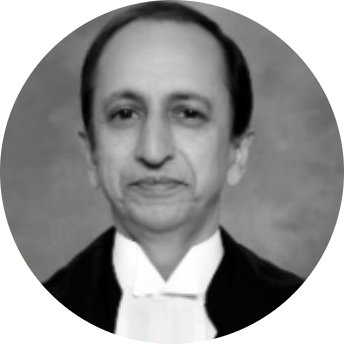A.S. Chandurkar

A.S. Chandurkar
Sitting Judge of the Supreme Court of India
Assumed Office30th May, 2025
Retires On6th Apr, 2030
Previously
Judge of the Bombay High Court21 June 2013 - 29 May 2025
Profile
Early life and Education
Justice Atul Sharachchandra Chandurkar was born on 7 April 1965. He completed his early education at St. Vincents’ High School, Pune. He completed his undergraduate studies from Ness Wadia College, Pune, followed by a law degree at I. L. S. Law College, Pune.
Career as an Advocate
Justice Chandurkar then enrolled in the Bar on 21 July 1988 and began his practise at the Bombay High Court. He worked at the Chambers of Senior Advocate B.N. Naik.
Career as a Judge
On 21 June 2013, he was sworn in as an Additional Judge of the Bombay High Court. He became a permanent Judge of the High Court on 2 March 2016. He served the Principal Seat of the Bombay High Court as well as its Benches at Nagpur and Aurangabad and the High Court at Goa.
On 26 May 2025, the Supreme Court Collegium, led by Chief Justice B.R. Gavai recommended his appointment to the Supreme Court. This was confirmed by the Union on 29 May. He took oath as a Supreme Court Judge on 30 May.
Justice Chandurkar will have a tenure of four years and ten months and will retire on 6 April 2030.
Notable judgements
In Zainab Abdul Qayyu m Choudhary v Chembur Trombay Education Society’s, N.G.Acharya and D.K.Marathe College of Art, Science and Commerce,(2024) upheld a circular prescribing a dress code for students which restrained them from wearing a Hijab or Nakab. Justice Chandurkar agreed with the reasoning that the dress code was prescribed to achieve uniformity and to maintain discipline. The College administration had a fundamental right under Article 19(1)(g) to issue such a circular. He also found that there is no material to suggest that the donning of Hijab and Nakab is an essential religious practice. The directive was partly stayed by a Supreme Court bench of Justices Sanjiv Khanna and P.V. Sanjay Kumar.
In Kunal Kamra v Union of India,(2024) Justice Chandurkar held that a state-endorsed Fact Check Unit (FCU) infringed the freedom of expression and the freedom to carry out a profession under Article 19. He was the tie-breaker judge after a Division Bench of Justices G.S. Patel and Dr. Neela Gokhale delivered a split verdict on the constitutionality of the FCU under the Information Technology (Intermediary Guidelines and Digital Media Ethics Code) Rules, 2021. He agreed with Justice Patel that there is no right to the truth, and no responsibility of the State to ensure that the citizens are entitled only to “information” that is not fake or misleading as identified by the FCU. Such restrictions are not guaranteed under Article 19(2). He further held that the constitution of a FCU could result in a chilling effect on the freedom of speech and expression. He also agreed with Justice Patel that the amendment infringed the right to carry out profession as the FCU was only subject to digital media and not the print media.
In Mahendra Bhaskar Limaye v Union of India (2023), he held that the lack of judicial dominance in the Search-cum-Selection Committee for appointment of President and members of the State and District Consumer Disputes Redressal Commissions violated the doctrine of separation of powers and encroached upon the judicial domain. He observed that the Executive’s control over quasi-judicial tribunals needs compulsory exclusion from the Search-cum-Selection Committees, as envisaged in the Consumer Protection (Qualification for appointment, method of recruitment, procedure of appointment, term of office, resignation and removal of the President and members of the State Commission and District Commission) Rules, 2020. The Rules diluted the involvement of the judiciary and were therefore, invalid, he declared.
In Byramjee Jeejeebhoy Pvt Ltd v Union of India (2024), he held that retrospectively amending a law to nullify the basis of a prior Court decision cannot be deemed an encroachment on the judiciary’s powers. He upheld the constitutional validity of the Textile Undertakings (Nationalisation) Laws (Amendment and Validation) Act, 2014 as it did not suffer from the vice of offending the doctrine of separation of powers. A Special Leave Petition against this judgement is pending in the Supreme Court.
